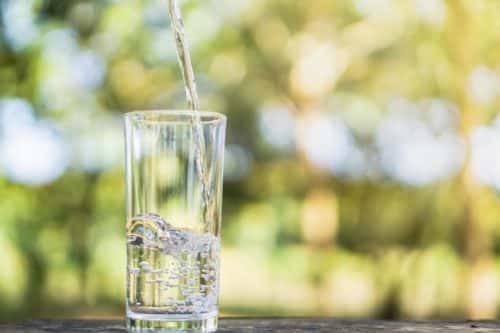
The quality of our water is delicate. Its current and future state hinges on several factors, which vary from location to location. Yet there are some stand-out issues that are present in most waterways. In order to understand the importance of these issues and why they are occurring in today’s society, it is important to begin with their causes.
Water quality is affected by many factors, and some of the biggest ones include the following.
Pollution
Pollution can come from many different sources, including industries, agricultural runoff, and human waste. To have a healthy and safe waterway, pollution must be kept in check. Pollution can occur when landfills aren’t secured properly, chemicals and human waste are dumped into rivers and streams, or if sewage isn’t properly disposed of. This pollution can cause various issues for organisms in the water, and it must be stopped to keep water quality high.
pH
pH is a measure of the acidity or alkalinity of an item, and it is an important part of water quality. pH is measured on a scale from 1 to 14, with 7 being neutral. If pH is below 7, that means it is an acidic substance. If it is above 7, it is an alkaline substance. The pH scale can vary due to the presence of different ions in the water. When pH is out of balance, it can affect organism health and/or survival, nutrient availability, and oxygen transfer.
Nitrogen and Phosphorous
A large concern for water quality is the amount of nitrogen and phosphorous found in the water. This is a large issue because they are considered “nutrient” ions. Nutrients like N and P can cause various negative effects on water quality. They can cause an overgrowth of algae, which will then die and decompose. This decomposition process uses oxygen from the water, which causes a decrease in the amount of oxygen available to other organisms. If the dead algae is not recycled and flows freely with the water, it will also decompose and use all of the oxygen in the water. If there isn’t enough oxygen in the water, fish and other organisms will die. It is also possible for nitrogen and phosphorous to cause “eutrophic” conditions, which occur when there is a large growth of bacteria (like algae) in water.
Temperature
As stated previously, temperature changes can alter the chemical balance and decrease water quality. A warmer climate allows for more algae growth, which increases chemical production as well. Extreme weather events are common and due to global warming, more intense weather will be experienced. This can lead to more contamination of the water, which will then lead to a decrease in water quality.
Dissolved Oxygen
Dissolved oxygen is an important piece of water quality. When there is not enough oxygen and organisms die, this leads to a decrease in water quality.
Pesticides
Pesticides are harmful chemicals that are used to kill unwanted pests. These can be put in the soil to kill weeds, put on crops to kill insects and fungus, or simply be dumped into waterways. These pesticides can cause various issues for organisms that live in the water. Water quality can be affected due to the presence of these chemicals and the damage they cause.
Topography
The topography of a body of water can greatly affect water quality. If the area is in an area that receives a lot of runoff or rainfall, there will likely be a decrease in water quality. This runoff flows freely into the water and can carry harmful contaminants. The steepness of the area can also affect water quality. If the land is steep, it can increase runoff and cause erosion.
The Geology of a Stream
The geology of a stream can greatly affect it. Streams flow through rock and sediment, which can cause a decrease in water quality. If the stream is in an area that creates flooding or erosion, this will lead to a decrease in water quality. A stream that flows over a large deposit of rock, which is very hard, will increase water hardness, decreasing water quality.
Household Cleaners
Household cleaners are chemicals that are used to clean household items. They are usually very toxic and can cause various problems for organisms. They can be harmful to the microorganisms in the water and aquatic organisms. Because of these harmful effects, there is a decrease in water quality.
Leachate Drainage
Leachate is a wet or moist substance that seeps through the soil. It usually contains harmful chemicals that are produced by decomposing organic materials. These substances can be harmful to organisms in the water, and it is important to keep them separated. However, this is not always possible, which leads to a decrease in water quality.
Amorphous Silica
Amorphous silica is commonly found in various industries such as cement production. This can be harmful to organisms in the water and decrease water quality.
That being said, one of the most common and devastating causes of water pollution is human negligence. Therefore, it’s important to be mindful that this issue is largely human-induced. The amount of water pollution that humans can cause is only restricted by the creativity of their minds and their willingness to implement ideas. Therefore, we should be wary of our behaviors and actions when we are in a potential water pollution situation.
Not only is safe water essential for your health, but clean water is crucial for your appliances too. Softened water helps appliances like your dishwasher or washing machine run more efficiently, which helps them last longer. However, water is not generally safe for drinking and cooking because it can contain minerals, bacteria, chemicals, and other harmful substances. It’s important to implement filtration methods with your water, as water treatment is essential to provide clean and safe drinking water.
At Apex Plumbing, we can help you make sure your water is treated for drinking and cooking and that your appliances continue to run well. Our water specialists can help you with any plumbing issues you might have and implement the most effective methods to reduce your water pollution naturally.
Contact Apex Plumbing today for a free consultation or to schedule a service. We serve Columbus, OH, and surrounding areas.





